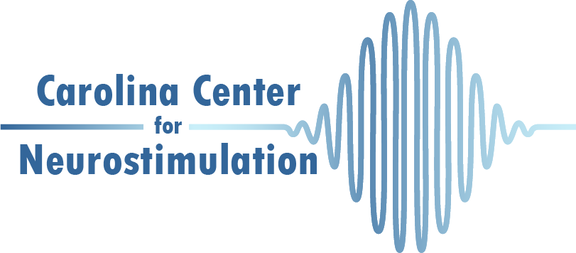|
I would like to take a moment to share with you something we are working on in the Center and to get your input. Now and then, we get research participants who ask about access to their own data. Researchers often provide a pretty picture (brain scan) or a more-or-less random printout of a time-series, which seems to be OK for most participants. Here at the Center, we feel that if you participate in a research study, you should get a copy of your own raw data if you are interested. We are working towards rolling out a policy across all our studies with healthy participants, in close collaboration with our IRB. Here are some of the thoughts and concerns that have come up along the way:
Take care, Flavio
0 Comments
I am delighted to share with you that we are now enrolling patients for our new non-invasive brain stimulation study for auditory hallucinations in schizophrenia. This study is a follow up study to STILL 2, where we found that a new type of brain stimulation approach may (with all the uncertainty of small, early pilot studies!) provide more relief than placebo or a more established form of brain stimulation. Please understand that we are pioneering this type of intervention (to our knowledge we are the first in the world to study this specific type of intervention in schizophrenia) and that there are no clear findings (yet!) that prove the effectiveness of any form of brain stimulation for the treatment of schizophrenia. Only through research we will get to that point!
In STILL 3, We are using very low power stimulation with the goal to reduce chronic auditory hallucinations associated with schizophrenia and schizoaffective disorder. In this study, we use a form of stimulation called transcranial alternating current stimulation (tACS). This is a low power intervention that most participants report that they cannot even feel. Previous research, including studies done here at the Carolina Center for Neurostimulation, support further investigations of this modality. This study will also provide the research community with important and fundamental information on brain rhythms in complex disorders like schizophrenia. This is essential for enhancing our understanding of mental health at a brain-network level and may be key to unlocking future methods of treatment. You may be eligible for the study if:
If you are interested in the study or have questions please reach out to our Study Coordinators Anthony: 919-966-9929 [email protected] Morgan: 919-966-4755 [email protected] We have locations at UNC Chapel Hill Medical School Wings And Falstaff Road in Raleigh We look forward to hearing from you. Please note that this study has been approved by the Institutional Review Board of the University of North Carolina at Chapel Hill. Please do not forget that this is a research study and we do not know yet if any of the interventions studied will ultimately prove effective and become clinical treatments. We are delighted to announce the 2018 Carolina Neurostimulation Conference. The meeting will take place at UNC-Chapel May 21-23 2018 and is organized by our center. We have a list of 19 confirmed speakers from all across the world. We are honored to have the best of the best join us for this meeting. You can learn more about the meeting on the website of the meeting.
I would like to take a moment to explain why we decided to organize this meeting. We have designed it in a way that it should not compete with other existing meetings, but rather provide a different, complementary experience.
We hope you are able to join us! Please post below if you have any comments/suggestions for the planned meeting. We look forward to welcoming you! Flavio & Team |
Archives
February 2018
Categories |
If you have questions or concerns about your rights as a research subject, you may contact the UNC Institutional Review Board at 919-966-3113 or by email to [email protected].

 RSS Feed
RSS Feed